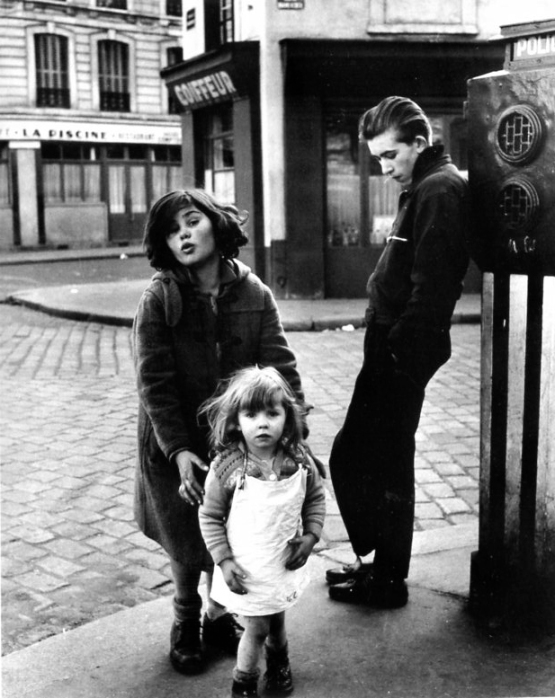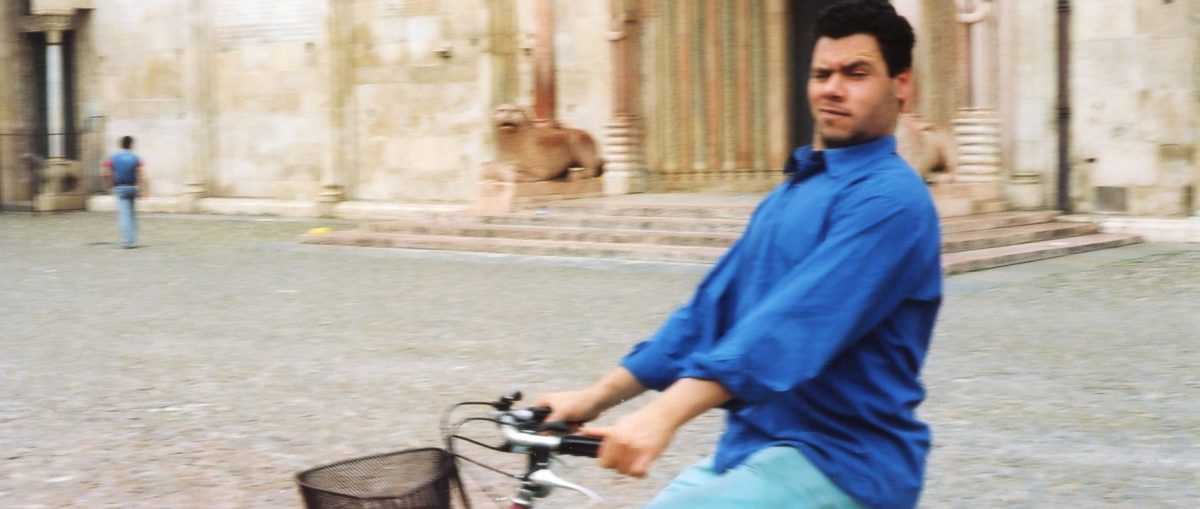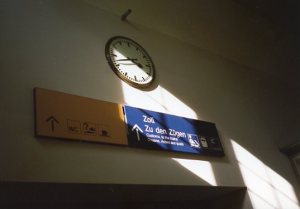 Escape from Mainz This is from the story of a German Jew who was living and working in London in the 1930’s. This extract tells the story of his parents who were still living in Mainz in 1938, first published in the 1981 edition of You, You & You! The People Out of Step with World War Two. The original and longer unpublished version is now restored online at http://www.youyouandyourestored.wordpress.com
Escape from Mainz This is from the story of a German Jew who was living and working in London in the 1930’s. This extract tells the story of his parents who were still living in Mainz in 1938, first published in the 1981 edition of You, You & You! The People Out of Step with World War Two. The original and longer unpublished version is now restored online at http://www.youyouandyourestored.wordpress.com
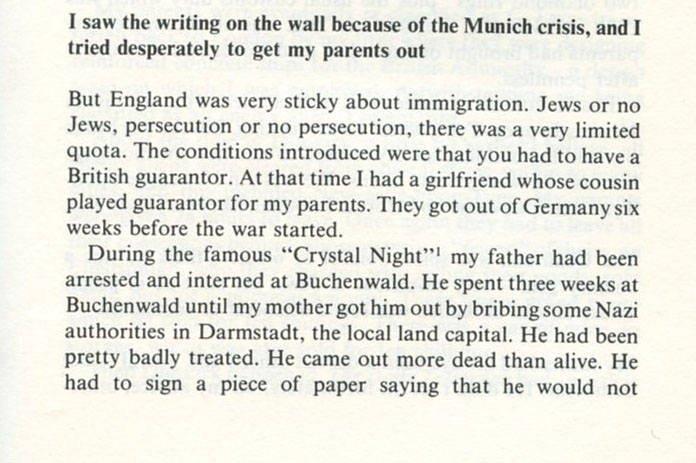


Escape from Vienna
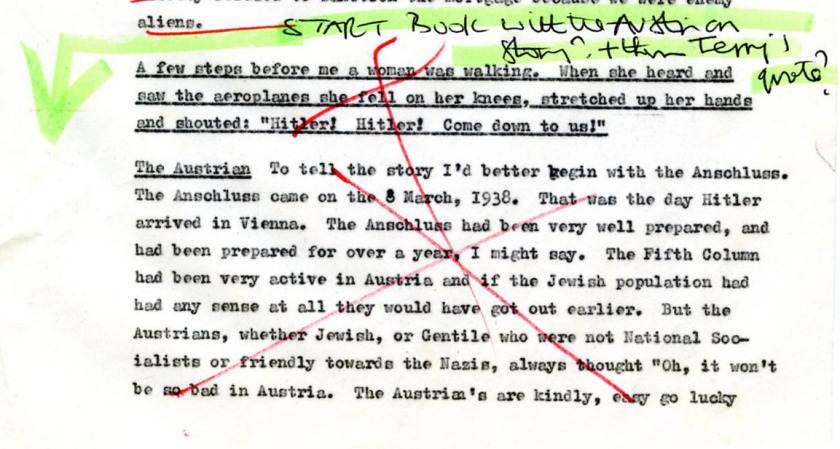 This unpublished extract has been restored to the longer original manuscript of You, You & You!, online at www.youyouyourestored.wordpress.com
This unpublished extract has been restored to the longer original manuscript of You, You & You!, online at www.youyouyourestored.wordpress.com
A few steps before me a woman was walking. When she heard and saw the aeroplanes she fell on her knees, stretched up her hands and shouted: “Hitler! Hitler! Come down to us!”
The Austrian To tell the story I’d better begin with the Anschluss. The Anschluss came on the 12 March, 1938. That was the day Hitler arrived in Vienna. The Anschluss had been very well prepared, and had been prepared for over a year, I might say. The Fifth Column had been very active in Austria and if the Jewish population had had any sense at all they would have got out earlier. But the Austrians, whether Jewish, or Gentile who were not National Socialist or friendly towards the Nazis, always thought “Oh, it won’t be so bad in Austria. The Austrian’s are kindly, easy go lucky people. They’ll never be as bad as the German Nazis”. Freud thought so too. But they were mistaken.
In March my son was about three months old. On the day of the Anschluss I was going shopping and pushing the baby in the pram, along the street, when suddenly a swarm of aeroplanes flew over in formation. I lived in a small town near Vienna – Baden, a small provincial town. A few steps before me a woman was walking. When she heard and saw the planes she fell on her knees, stretched up her arms and shouted “Hitler! Hitler! Come down to us!” I’ve never forgotten that. So you see, part of the Austrian population were willing to accept Hitler with open arms. The trouble was, if the Church, the Catholic Church in Austria had set an example and opposed Hitler, the population (who are very strong, very staunch Catholics, and a little naive I may say – not like the Anglo Catholics – it’s a kind of peasant catholicism in Austria) if they had opposed Hitler the population would have followed the Church. As it happens, the Archbishop of Vienna, of the day, Archbishop Innitzer welcomed Hitler at Vienna airport in the way Emperors were welcomed in cities in the Middle Ages – that is, the priest walking to meet the conquerers in full Church regalia, bearing the monstrance, ready to give him the blessing. As the Church went over to Hitler completely, that was the sign for the population.
All hell broke loose. There were a lot of shady elements in Vienna and the surrounding areas – prostitutes, pimps, pickpockets – people ready to benefit from the dispossession of others. Like rats they crawled out of their corners. Everything was well organised. All the young people joined the SA or the SS – the Sturmabteilung, and the better class the Sturmstaffel. They were an elite corps. The very crack regiment were the SS Totenkopf – Death Head Brigade – because they wore the black jackboots, the black uniform with the silver insignia and the cap with the skull and crossbones. All the people who had “A” levels, or university degrees – these young people automatically became members of the higher ranks in the SS and Totenkopf brigade.
Life became – I wouldn’t say unbearable – but as if you were living under a black cloud, because you knew you had to get out eventually. People frantically wrote to friends abroad trying to find a visa – it was impossible. The summer passed and the autumn passed in this – for Jewish people – terrible way.
My husband and his brothers owned a factory of water-filters. They had been exporting to America and England. In the summer of 1938 all Jewish owners of businesses and factories were dispossessed. This process was called Aryanisation. My husband and his brothers were forced to sell to an Aryan German firm. It was only nominally a sale. No money changed hands. They had to give away their cars. Whatever was in the factory of their own belongings was taken. From one day to the next they were out of work. People lost their jobs if they were employed by the State.
I was running a small language school at a place near the town. Aryan people no longer came to be taught but I was still earning money because every Jewish person rushed to speak English. I had a very large class where everyone had to pay only a very little because people didn’t earn money any more. A very strange thing then happened that depressed us very much. All my pupils, who were almost the entire population of that small town, asked me to fill in application forms for them, for emigration to Australia, to Canada – trying desperately to get a visa. You could find out from the embassies of these countries what professions would be likely to find work. My husband was an engineer and they all wanted engineers, but the strange thing is that every one of my pupils who’s application form I filled in and who I wrote a testimonial for got a visa, and we were refused – by Australia, by Canada and until today I’ve no idea why.
The SS major said to me very quietly “Have you no friends abroad to whom you could write”
Then came the infamous Reichskristallnacht – Crystal Night, November 10. It got that name because the Nazis were officially encouraged to break into Jewish homes and smash everything, and from the bits and pieces of china and glass the name arose. In this night all the Jewish men they could get hold of were rounded up and taken to the local police station. On the following day they were made to scrub the pavements of the main public square. Stormtroopers had spat on the pavement and they stood around in a circle laughing whilst the men had to scrub it off.
My flat was taken over by a major in the German army and my furniture was taken away. I was very childish – I was young, and I greatly valued my furniture as you can imagine. I had not been married very long and I set great store by that. It was heart-breaking for me. But all that was nothing, nothing when my husband was taken to the Vienna main police station with other Jewish men, where they received a sound beating, and because on the day before the Kristallnacht the refusal of our visa application had arrived, he had that in his pocket and he was sent to Daucha. Then of course I didn’t mind whether the furniture was there or not. That was nothing. Life became the real nightmare then.
They sealed the flat with a huge seal with the German eagle, and they only allowed me to put my coat on, to dress the child, to take one woolen blanket and a potty, and that was how they put me out of the flat.
They took me and the baby down to some barracks outside the town. In the barracks they had already locked up well known socialists and communists of this town. There was an old man there – a communist – and he said to a soldier “Look, if you keep this woman and this child here overnight I guarantee the child will be dead by tomorrow night through lack of milk and water”. I was paralysed with fear, I just cried. I didn’t protest. I was young then, about 25, and one’s afraid of soldiers after all, especially if they are enemy soldiers.
There was a Major there, an SS major and he overheard this. He apparently had some decent feelings because he told me “Get into my car”. He took me and the baby back to the town. On the journey the SS major said to me quietly “Have you no friends abroad to whom you could write?”. “But Major,” I said, “we have been told it is forbidden to write abroad about what is happening, because when they broke into my flat they told me not a word of this must be breathed to anyone. I’m afraid to write because some revenge might be taken against my husband in Dachau”. He said quietly “Get some paper and write as quickly as you can”. It was very decent of him. He let me get out at the house where the flat was. The landlady’s flat had not been taken away. She was a Jewish woman as well and she allowed me to stay there as I didn’t know where to go.
I knew England as the country of John Galsworthy’s Forsyte Saga
A couple of years before, when I was a student at Vienna university, I had spent a summer in England. It had been arranged by a branch of the National Union of Students. It was a camp on the Isle of Wight. At the camp was a middle aged schoolteacher from Ilford County High School – a science teacher with a group of boys. His name was Mr Wallington. He took some interest in me because I spoke English fairly well and he spoke German. He had friends in Germany. After the Isle of Wight our Viennese group spent a fortnight in London. Mr Wallington very kindly invited me to spend a day with his family in Gants Hill, Ilford. When the SS major told me to write, I wrote to Mr Wallington. He was fantastic. He went to the Jewish Refugee organisation at their headquarters in Woburn House, in Woburn Square, London and said “I’m a teacher. I’m not a man of means, I cannot help the family financially, but I will guarantee their good character. I will be their moral sponsor”.
The miracle happened. I got a letter from the British Embassy to come and collect my visa. Now came the next step. With this visa I now had to try to get my husband out of Dachau.
The headquarters of the Gestapo in Vienna had to give orders to the Commandant of Dachau concentration camp to release this prisoner. This was very, very hard. Not only did you have to show the visa, but you also had to prove all taxes had been paid. I could prove we had paid our personal taxes but they also required proof that all the taxes on the business had been paid, before it passed into Aryan hands.
Now here I was, having no idea of business. My brother-in-law was in Vienna and was terrified the same thing might happen to him. In Vienna it wasn’t so easy to round up all the Jewish men. It was a large city. It couldn’t be done. But in a small town it was different, where you knew everyone, and where your former non-Jewish friends were only too eager to say “Yes! There’s one in that flat, and there’s one in that flat” – and did it joyfully.
I must tell you, too, that whilst I was in my landlady’s lodgings the little baby had to eat and drink, of course. I went to the dairy, to the dairy woman who for years had supplied our daily milk. My mother had been her customer. I had been her customer. She refused to sell me any milk. I asked her why. “My son”, she said “is in the SS and he has forbidden me to sell any milk to Jews”. The same thing happened at the bakers, and so on and so forth. It was partly fear and now I think I can understand it better because few people are heroes. It’s definitely hard for the individual to stand out from the mass. If all the people had risen together in rebellion it would have been very different. But I’m convinced that it’s terribly hard for one individual to stand out and speak out.
Overnight Gentile friends turned into strangers. The strange thing is, propaganda had such an influence. The Jews were labelled as sub-human – Untermenschen. People really believed it, including the people who had known you as a child, who had grown up with you. Propaganda is an awfully strong weapon.
With the taxes, I was told I had to go to the Town Council of Baden to get them to put down on paper that all the taxes of the factory had been paid, and that they had to fix their seal to the document. I consulted a man who had been my husband’s business consultant – their chief accountant – and I managed to remember all the figures and I could furnish all the proof. I cannot remember how I managed to do that. I think when you are really desperate you are able to do things which normally would be beyond you.
To obtain a hearing at the Gestapo place you had to queue up at 5 o’ clock in the morning. There were queues stretching down the road. The entrance was guarded by some of these jackbooted SS people. The queues were all women – all the women who’s husbands were in concentration camps. The soldiers took great delight in kicking us with their boots. They kicked us with their boots and shouted “Dirty Jewess, will you keep in line!”, and so on. But I must say, if you’re desperate, things don’t hurt you. In this way I was able to eventually to get my husband out, after he had been four months in Dachau.
Mr Wallington met us at Croydon airport. I felt very relieved but my husband felt very much afraid.
When he came back I wouldn’t have known him. They shaved him completely and he was emaciated. He never spoke much about his stay. He only told few things. It was winter. He had ben arrested in November. He was there until February. Dachau is on the Dachau Moors, a lonely moor in Bavaria. The men were lined out for the morning roll-call and evening roll-call, standing in deep snow in their bare feet and only wearing pyjama trousers. My husband was a little over 30. Older men often fell and were shot. Their ashes were sent back to the family. “Shot whilst trying to escape”. That was the story. My husband told me it took him all his will power to stand still without moving a muscle. It was fun for the guards. They could make the people stand for an hour, two hours, or even longer. They made them do exercises in the snow.
When they released him he had to sign a form that he would be out of Austria within one week. Fortunately he had a brother in Zurich where we could stop off for my husband to grow some hair before he came to England, and he had all sorts of wounds and sores from bayonet beatings. Switzerland was terrified of the Nazis and would give Jewish refugees only a fortnight’s stay.
On the journey out of Austria there was a last search for jewellery on the train. We had to give it up anyway – we had no jewellery. They made my husband strip and a SS woman took me and my child into an empty compartment which was icy cold and she made us strip and searched us in a very nasty manner for hidden jewellery – in the most revolting manner. My child caught a cold and had an inflammation of the middle ear as a result. He had to have a slight operation in Switzerland, and then we came to England.
Mr Wallington met us at Croydon Airport. I felt very relieved but my husband felt very much afraid. They had broken the men in the concentration camp. He had been a happy, cheerful young man, an excellent sportsman. He had won skiing trophies in the Tyrol. He had been an excellent swimmer, a footballer, a tennis player. But the joy of life had gone out of him.
We had to register with the police. The Refugee Institution paid support. They gave us £3 a week, whilst my husband was not allowed to work. With the police we had to go on regular pilgrimages to Bow Street police station.
One frightening thing, according to your initial of your name in the alphabet you were given a certain day to collect the refugee benefit from Woburn House. There were vast crowds and everyone told you not to talk about a thing, because there were rumours – and I do not know whether they were well founded or not – that the Nazis had spies disguised as Jewish people, partly even speaking Yiddish, which I don’t speak, or Hebrew, to listen to conversations of refugees and report about them. There was an atmosphere of suspicion and fear. You didn’t know if the man standing next to you was genuine or not…..
The story continues, including her views of Austria and Austrians in the post-war period, in the restored You, You & You!, www.youyouandyourestored.wordpress.com
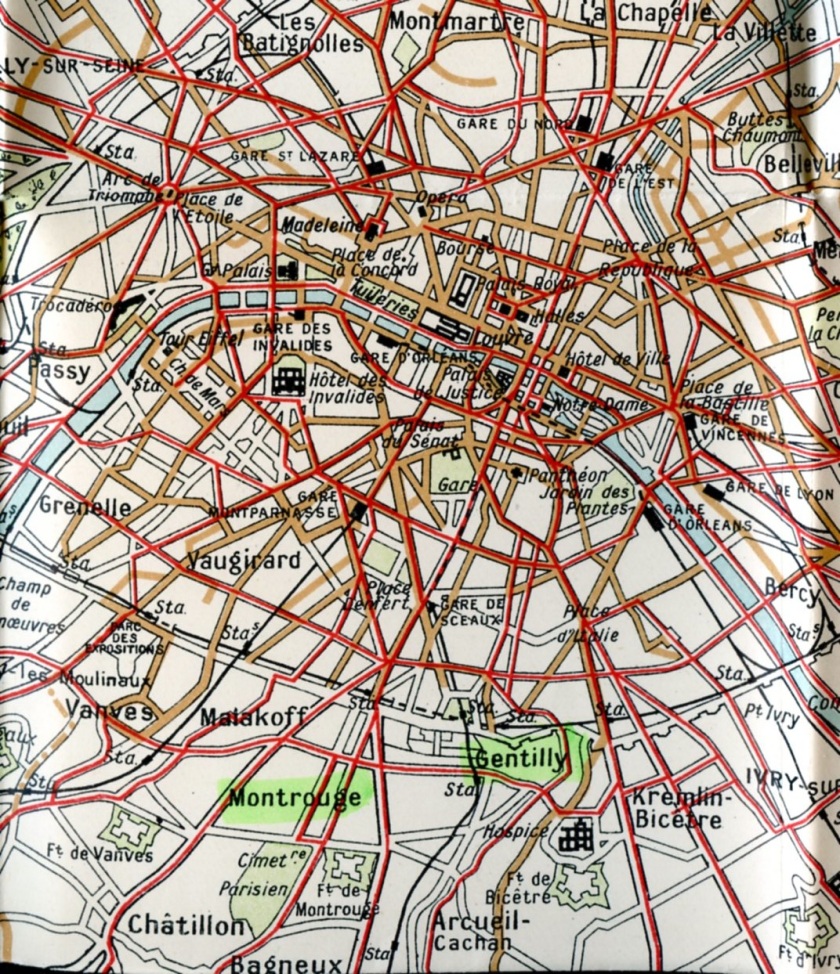
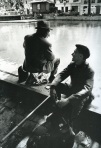













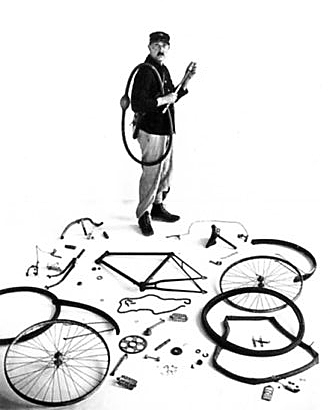





 Towards the end of his life there were other stresses. One, which was a reflection of the changing times was when a couple wrongly claimed in the early 1990’s that they were the subjects in his La Baiser de l’hotel de ville (The Kiss) and took him to court for cash. It caused Doisneau a lot of heartache. The case was eventually thrown out. The real couple were Francoise Delbart and Jaques Carteaud, and had been asked by the shy Doisneau if he could photograph them. (He had spotted them kissing). As they said later, the embrace was re-enacted, but the kiss was real. An irony, that wouldn’t have been lost on him, was that the The Kiss and The Kids in Place Hebert, two of his best known photos, were taken within the city. But city or suburb, like his contemporary photographic chroniclers of Paris – Izis and Willy Ronis – he has left us a collection of life affirming work, whilst highlighting also the sometimes hostile environment those living in Paris and the suburbs experience.
Towards the end of his life there were other stresses. One, which was a reflection of the changing times was when a couple wrongly claimed in the early 1990’s that they were the subjects in his La Baiser de l’hotel de ville (The Kiss) and took him to court for cash. It caused Doisneau a lot of heartache. The case was eventually thrown out. The real couple were Francoise Delbart and Jaques Carteaud, and had been asked by the shy Doisneau if he could photograph them. (He had spotted them kissing). As they said later, the embrace was re-enacted, but the kiss was real. An irony, that wouldn’t have been lost on him, was that the The Kiss and The Kids in Place Hebert, two of his best known photos, were taken within the city. But city or suburb, like his contemporary photographic chroniclers of Paris – Izis and Willy Ronis – he has left us a collection of life affirming work, whilst highlighting also the sometimes hostile environment those living in Paris and the suburbs experience.